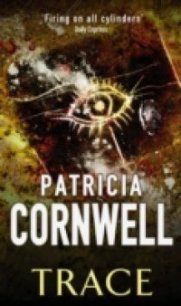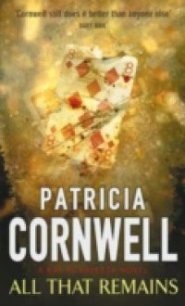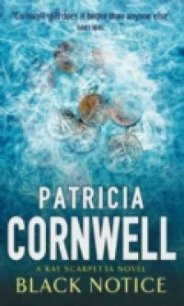The Last Precinct - Cornwell Patricia (лучшие книги читать онлайн TXT) 📗
Of course, there was acute interest in what was immediately dubbed the first murder in America, a rather presumptuous claim since we can't say for a fact it is a murder or the first one and the New World was hardly America yet. We did prove from forensic testing that JR was shot with a combat load fired from a European weapon called a matchlock musket and that, based on the spread of the shot, the gun was fired from a distance of approximately fifteen feet. He could not possibly have shot himself accidentally. One might deduce that a fellow settler was to blame, leading to the not so far-fetched notion that America's karma, sadly, seems to be for us to kill each other.
"Everything's moved indoors for the winter." Edith slips out of her jacket and drapes it over the back of the sofa. "Cataloging artifacts, writing up the findings, all the things we can't get around to while we're working on the site. And of course, fund-raising. That awful part of life that tends to fall in my lap more and more these days. Bringing me to my point. I got a rather disturbing phone call from one of our legislators who read about the motel death. He's in an uproar, which is unfortunate, because he's only going to end up doing the very thing he says he doesn't want, which is to draw attention to the case."
"Uproar over what?" I frown. "There was very little information in the newspaper."
Edith's expression stiffens. Whoever this legislator is, she obviously has no use for him. "He's from the Jamestown area," she tells me. "He seems to think the case might be a hate crime, that the victim was gay."
Footsteps sound softly on the carpeted stairs and Aaron appears with a tray, a bottle and three tumblers etched with the seal of the commonwealth.
"Needless to say, such a thing could severely compromise what we're doing out there." She chooses her words carefully as Aaron pours Black Bush. A door off the sitting area opens and the governor emerges from his private office in a draft of cigar smoke, his tuxedo jacket and tie off.
"Kay, I'm sorry to keep you waiting," he says to me with a hug. "Brushfires. Maybe Edith has given you the hint."
"She was just getting around to it," I reply.
Chapter 18
GOVERNOR MITCHELL IS VISIBLY DISTURBED. HIS wife gets up to allow us a private conversation and the two of them have a quick exchange about a call that needs to be made to one of their daughters, then Edith tells me good night and leaves. The governor lights another cigar. He is a rugged, good-looking man with a former football player's strong body and hair as white as Caribbean sand. "I was going to try to get you tomorrow but didn't know if you might be off somewhere for the holidays," he begins. "Thanks for coming over."
Whisky heats up my throat with each swallow as we engage in a polite exchange about Christmas plans and how things are going at the Virginia Institute of Forensic Science and Medicine. With every breath, I think of Detective Stan-field. The fool. He obviously divulged sensitive case information, and of all people, to a goddamn politician, his brother-in-law, Representative Dinwiddie. The governor is an astute man. More importantly, he began his career as a prosecutor. He knows I am furious and why.
"Representative Dinwiddie has a tendency to stir up a hornet's nest," the governor confirms who the troublemaker is. Dinwiddie is a militant pain in the ass who never lets the world forget his lineage can be traced back, albeit very indirectly, to Chief Powhatan, the father of Pocahontas.
"The detective was wrong to have told Dinwiddie anything," I reply, "and Dinwiddie was wrong to have told you or anyone else. This is a criminal case. This is not about the four-hundredth anniversary of Jamestown. It's not about tourism or politics. This is about a man who was most likely tortured and left to burn up in a motel room."
"No question about it," Mitchell replies. "But there are certain realities we have to consider. A hate crime that might in any shape or fashion seem connected to Jamestown would be catastrophic."
"I'm not aware of any Jamestown connection, beyond the fact that the victim checked into a Jamestown area motel that offers a business special called the sixteen-oh-seven." I am getting exasperated.
"With all the publicity Jamestown has already gotten, that information alone is enough to make the media's antennae go up." He rolls the cigar in his fingertips and slowly raises it to his lips. "It's projected that the two-thousand-seven celebration could eventually generate a billion dollars in revenue for the commonwealth. It's our World's Fair, Kay. Next year Jamestown is being commemorated on a coin, a quarter. News crews have been coming to the excavation site in droves."
He gets up to stir the fire and I am taken back in time to his former rumpled suits and harried demeanor, to his cramped office overwhelmed by files and books in the District Courts Building. We tried many cases together, some of them the most painful landmarks in my history, those sorts of random, cruel crimes whose victims still haunt my mind: the newspaper carrier abducted from her route and raped and left to slowly die; the old woman shot to death for the hell of it while she was hanging up clothes; the multiple people executed by the Briley brothers. Mitchell and I anguished over so many awful acts of violence, and I missed him when he moved on to a higher calling. Success separates friends. Politics, espe- cially, is ruinous to relationships, because the very nature of politics is to re-create the person. The Mike Mitchell I knew has been replaced by a statesman who has learned to process his fiery beliefs through safe and meticulously calculated subroutines. He has a plan. He has one for me.
"I don't like media feeding frenzies any more than you do," I say to him.
He replaces the poker on its brass stand and smokes with his back to the fire, his face flushed from heat. Wood pops and hisses. "What can we do about it, Kay?"
"Tell Dinwiddie to keep his mouth shut."
"Mister Headline News?" He smiles wryly. "Who has been very vocal in pointing out that there are those who think Jamestown was the original hate crime_against the Native Americans?"
"Well, I think it's also rather hateful to kill, scalp and starve people to death. Seems there's always been plenty of hate to go around since the beginning of time. It won't be me using the term 'hate crime,' Governor. It's not on any form I fill out, not a box to check on a death certificate. As you very well know, such a label is up to the prosecution, the investigators, not the medical examiner."
"What about your opinion?"
I tell him about the second body found in Richmond late this afternoon. I worry the deaths are related.
"Based on?" His cigar smolders in an ashtray. He rubs his face and massages his temples as if he has a headache.
"Bondage," I reply. "Burns."
"Burns? But the first guy was in a fire. Why does the second guy have burns?"
"I suspect torture."
"Gay?"
"No obvious evidence of it in the second victim. But we can't rule it out."
"Do we know who he is or if he's local?"
"So far, no. Neither victim has personal effects."
"Suggesting someone involved doesn't want them identified. Or robbery. Or both."
"Possibly."
"Tell me more about the burns," the governor says.
I describe them. I mention the case Berger had in New York, and the governor's anxieties become more palpable. Anger flashes across his face. "This sort of speculation needs to stay in this room," he says. "Last thing we need is another New York connection. Jesus God."
"There's no evidence of a connection, unless someone simply got the idea from the news," I reply. "I can't say for a fact a heat gun was used in the cases here, for that matter."



